6.9 Past Exam Questions
Reserve/variance Calculation
\(\star \star\) 2011 #2 (6.1): Cape Cod truncated and reserve CoV
2012 #2: Cape Cod method and reserve CoV
\(\star \star\) 2013 #3 (6.2): LDF method, need to calc \(\sigma^2\) and normalized residuals
2014 #3: \(\sigma^2\) calc
2014 #5: plug and play LDF and Cape Cod method with Benktander
\(\star\) 2015 #2 (6.3): LDF Method and concept where if we switch to Cape Cod the CoV should go down as it incorporates additional information
\(\star\) 2016 #3: stdv for cape cod and LDF and why the \(\sigma^2\) is higher for LDF
TIA 1: Reserve with truncated loglogistic and given parameters
Cape Cod
LDF method
TIA 2: Weibull
Cape Cod no truncation
\(\star\) Process standard deviation
Variance of incremental loss
TIA 3: Weibull
LDF method reserve
Loss reserve total standard deviation given parameter variance
Note that we can not model triangle with negative development
Other calculation
TIA 4: Loglogistic with LDF method
\(\star\)Log likelihood to test which parameters are better
- Probably too long for exam, but good for checking my understanding
Total reserve
\(\star\) TIA 7: given all parameters for cape cod; everything is mostly given but good to see how the calculation works
CY paid
Variance for the next CY paid
Prospective AY expected loss and variance
TIA 8: Setup data for clark’s calculation
TIA 9: loglikelihood for cape cod compare (similar to TIA 4)
\(\star\) TIA 10: process variance, long calc for \(\sigma\), LDF method and Weibull
\(\star\) TIA 11: count average dates for quarterly
TIA 12: count average date for policy year
TIA 13: count average date for policy year with stuff in between 12 and 24
Concepts
\(\star \star\) 2016 #4b: appropriatness of using Cape Cod
TIA 5: Assumptions made that lead to the cape cod and LDF method
- List the formula for the 2 methods
TIA 6: Advantages of Clark’s growth function method
6.9.1 Question Highlights
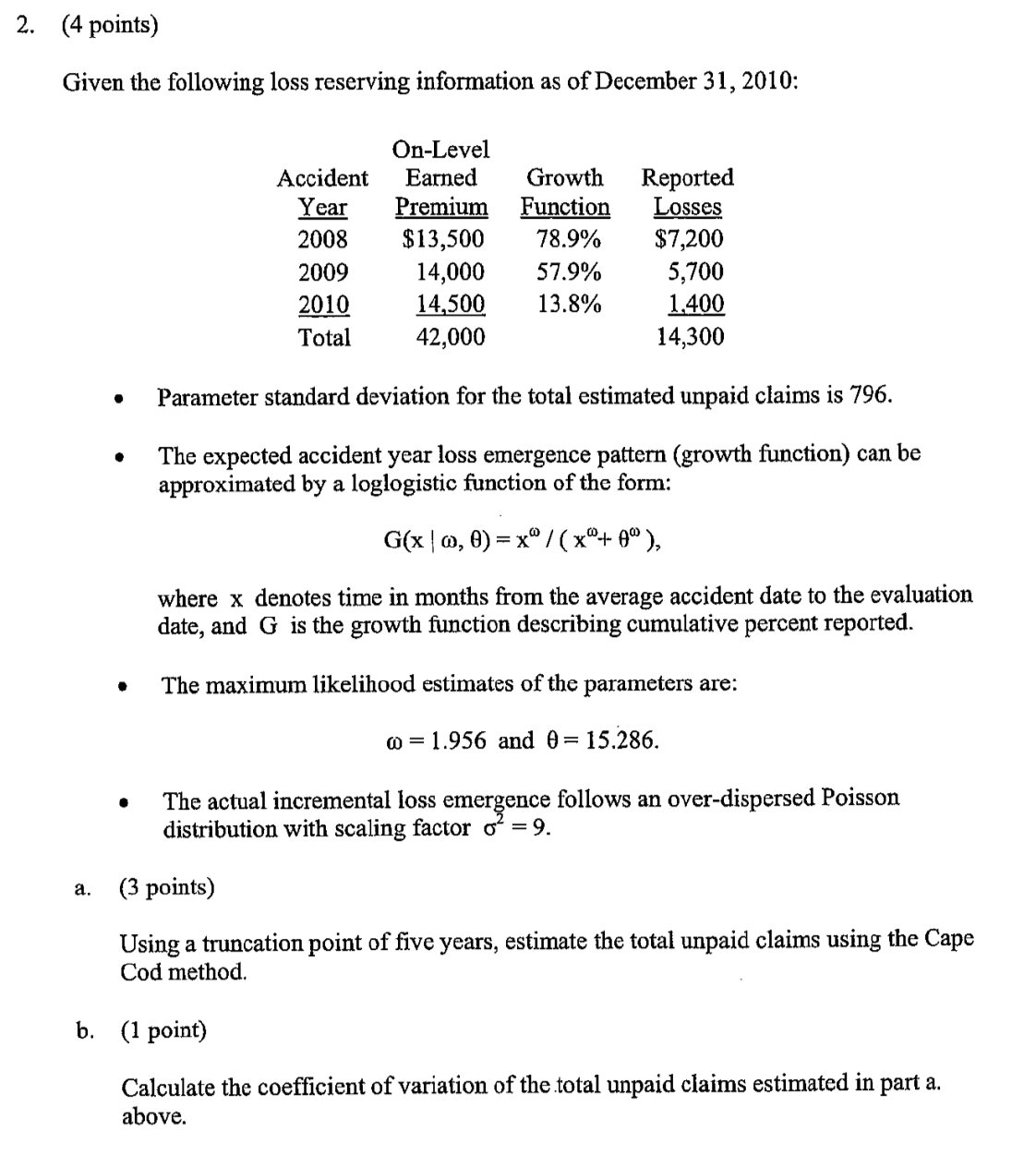
Figure 6.1: 2011 Question 2
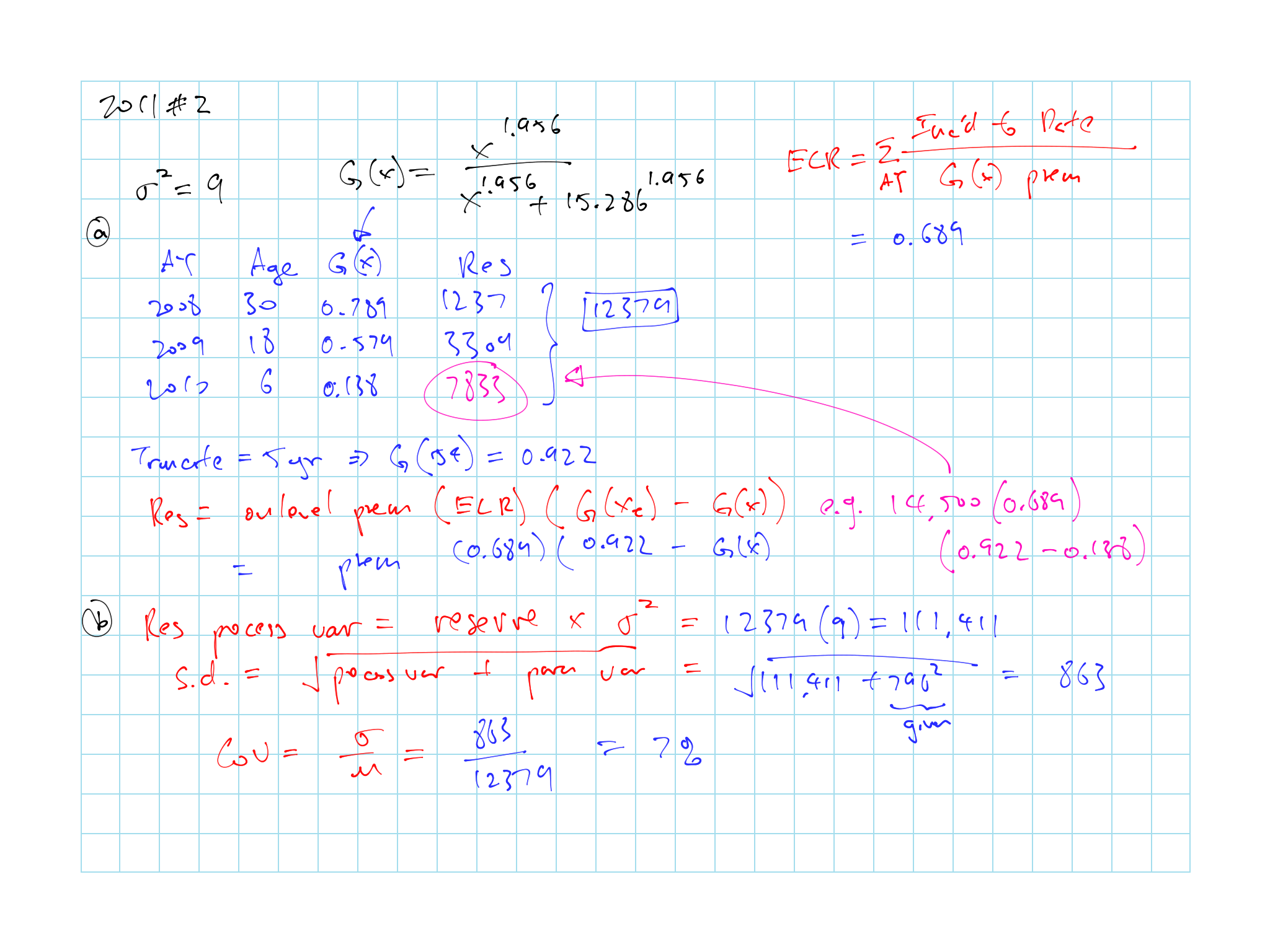
Figure 6.1: 2011 Question 2
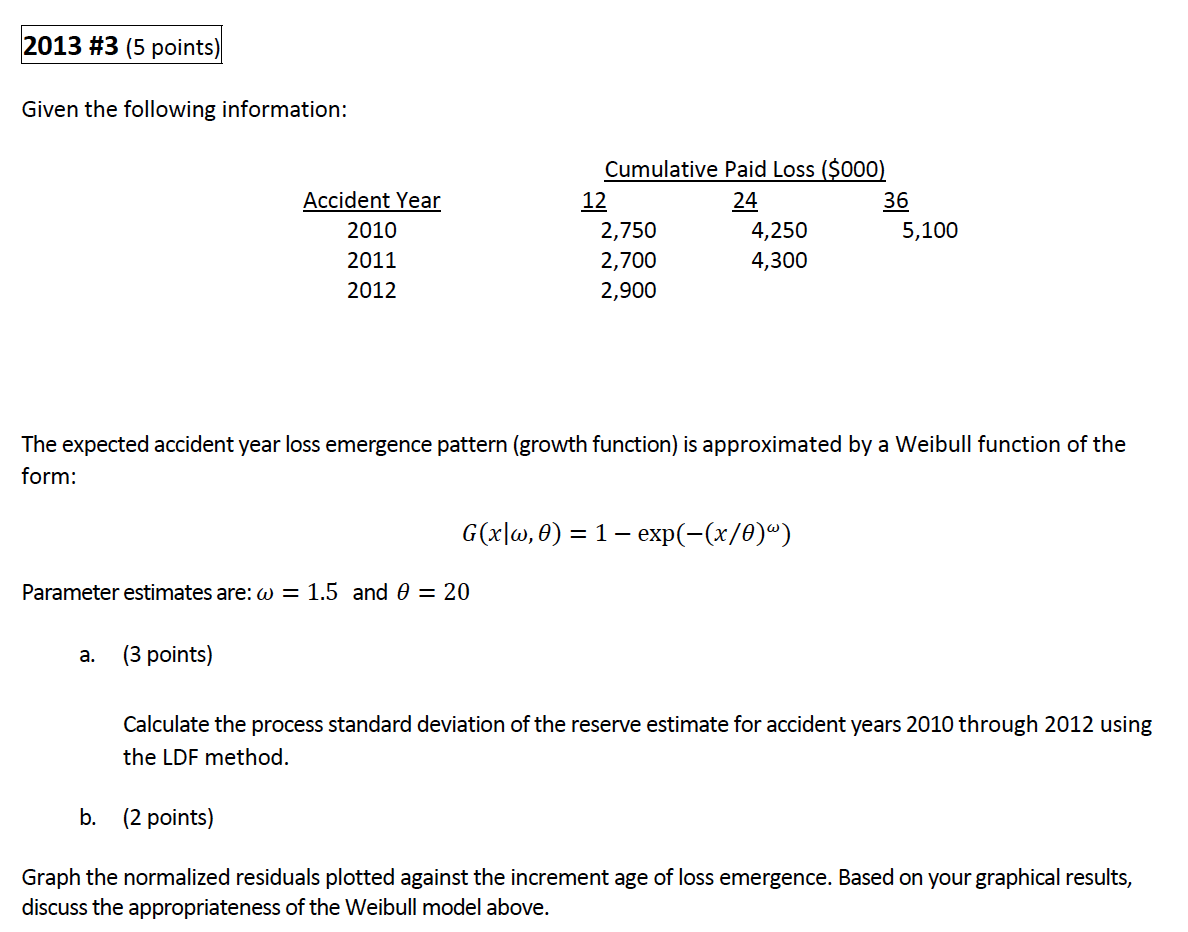
Figure 6.2: 2013 Question 3
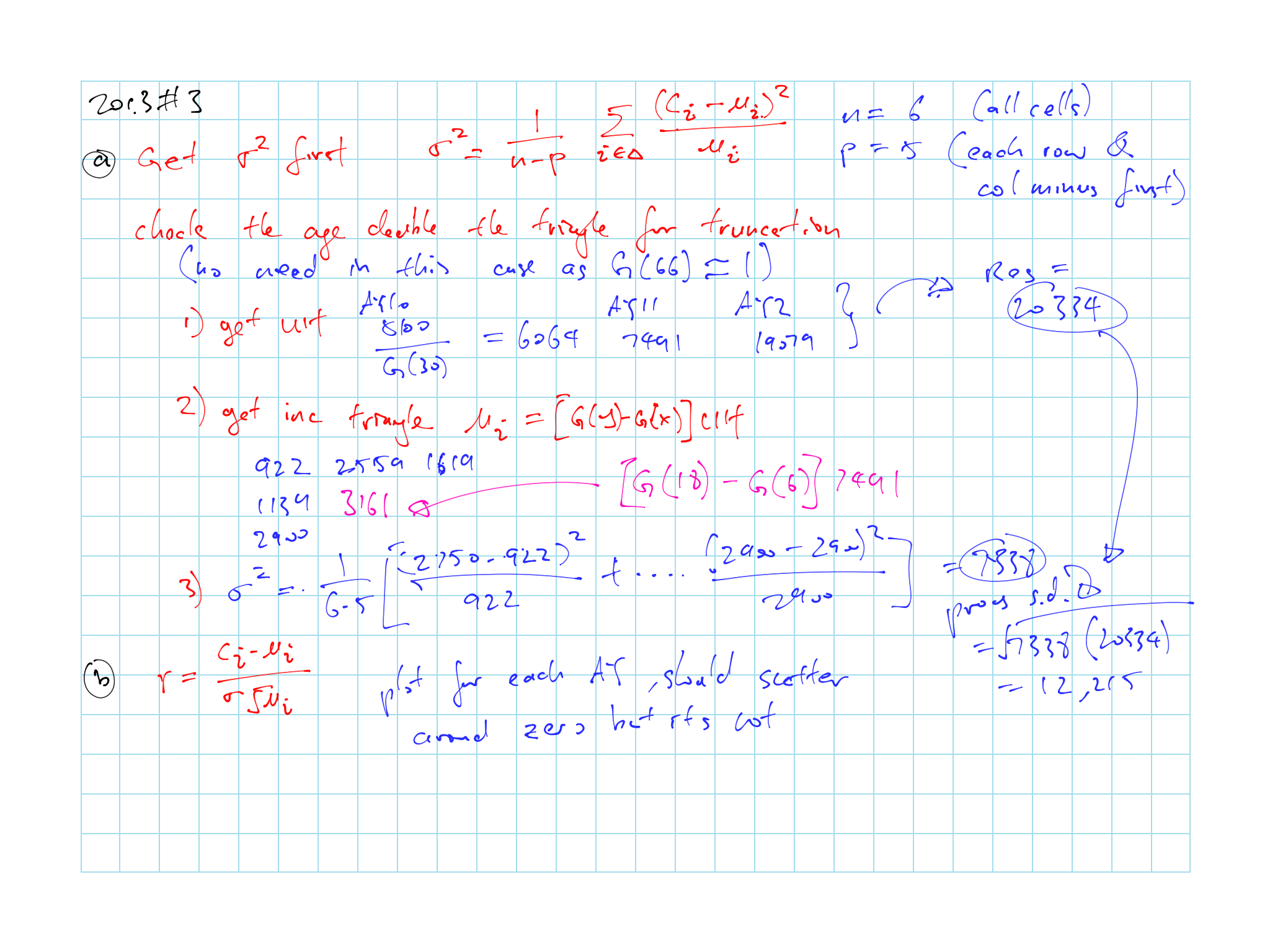
Figure 6.2: 2013 Question 3
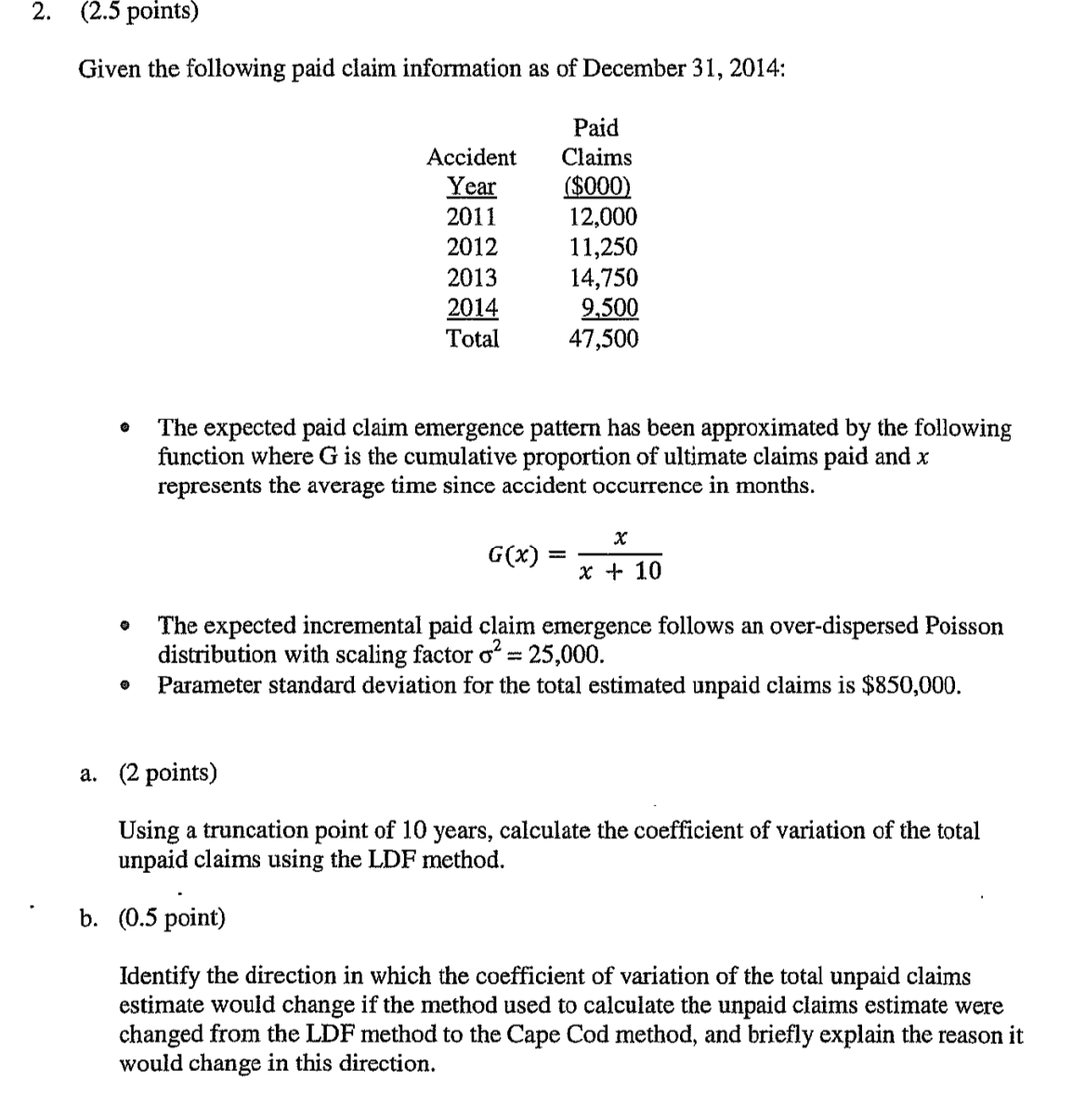
Figure 6.3: 2015 Question 2
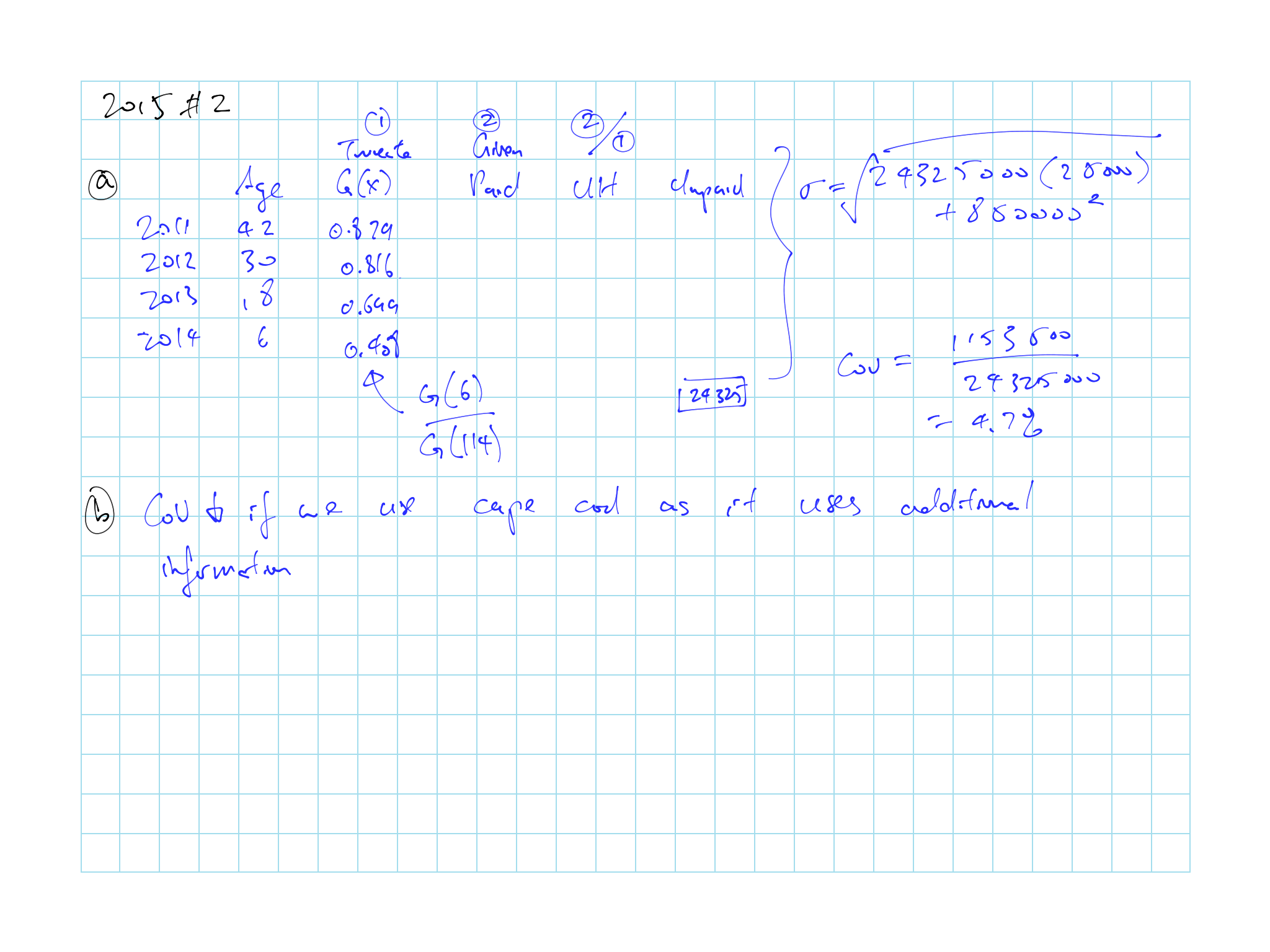
Figure 6.3: 2015 Question 2